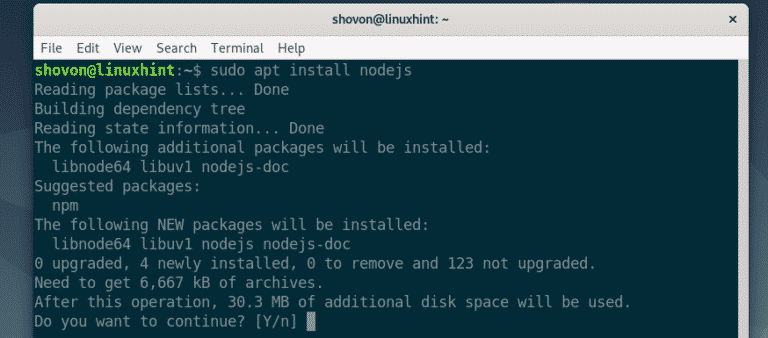


This will give you the flexibility to select the most recent Node.js versions including Node.js v4.x, Node.js v6.x, Node.js v8.x, and Node.js v10.x.įirst, execute the commands below to update your package index: $ sudo sudo apt update In this step, we’ll help you install Node.js using the personal package archive (PPA) which is maintained in the NodeSource repository.

Installing Node.js Using A Personal Package Archive (PPA) However, if you want to try other package archives, versions, and version managers, then, you will have to implement the most recent versions using the NVM or from the NodeSource repository. If you are comfortable with the version you installed, then, that’s all you need to get started with Node.js on your Debian system. This prevents the conflict that may occur between the two executables from the official Debian repository. Note: We are using Nodejs and not node to check the version of the newly installed Node.js. Next, check the version of the Node.js application: $ nodejs -v Then, run the command to deploy the application (Node.js) from the Debian’s default repositories. First, execute the command below to update the package index: $ sudo sudo apt update In this section, we’ll utilize an apt package manager to install Node.js on Debian 9. Nonetheless, if you feel this package suits your need, you can go ahead and install it. The version is a stable option for a trial but may not be ideal for production and development uses cases. Installing Node.js Using An Package Managerĭebian’s default repository comes with a distro-stable Node.js version.


 0 kommentar(er)
0 kommentar(er)
